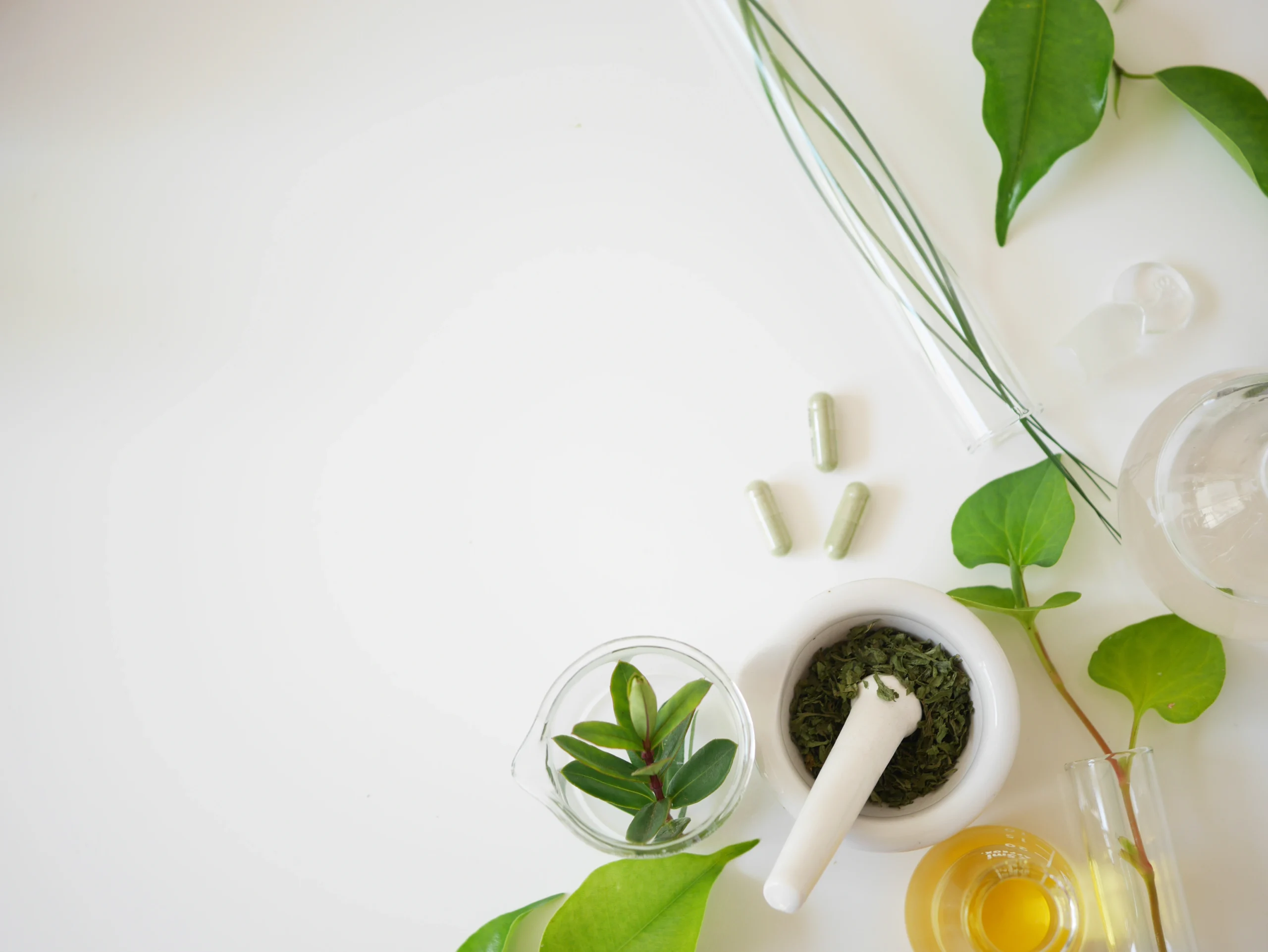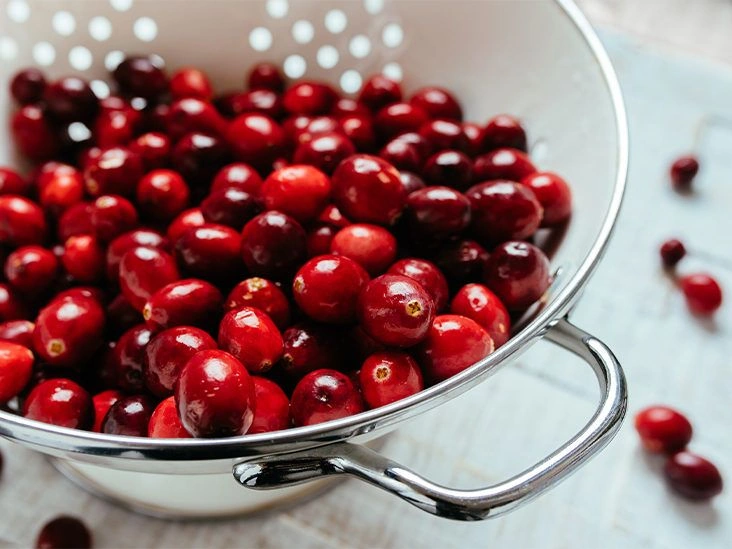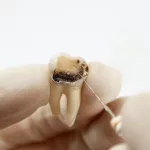Certain herbs and vitamins might aid in preventing urinary tract infections (UTIs) and in addressing uncomplicated cases. However, if you’re experiencing severe symptoms, medical care may be necessary.
If you’re among the many who suffer recurrent UTIs, you may be looking for natural or alternative approaches to reduce frequent antibiotic exposure.
Below are eight herbs and natural supplements that could help prevent and manage mild UTIs.

1. D-mannose
D-mannose is a simple sugar found naturally in foods like cranberries, apples, and oranges, but when used for UTI support it’s commonly taken as a powder or tablet.
The precise mechanism is not fully understood, but many specialists believe D-mannose prevents certain bacteria from sticking to urinary tract cells, allowing them to be washed away before they cause infection.
More studies are required to confirm whether D-mannose consistently treats or prevents UTIs, but several small trials have shown encouraging findings.
One study evaluated the impact of D-mannose on 43 women with active UTIs and a history of recurring infections.
For the initial 3 days, participants took 1.5 grams of D-mannose twice daily, then switched to 1.5 grams once daily for 10 more days. After 15 days, about 90% of infections had cleared.
While these findings are promising, the trial had limitations, including a small sample size and no control group.
Another study of 308 women compared a daily 2-gram D-mannose dose with a commonly used antibiotic for UTI prevention.
After 6 months, D-mannose performed comparably to the antibiotic at preventing recurrence and was linked to fewer adverse effects.
For most people, D-mannose is low risk. The most common side effect reported is mild diarrhea.
Because it’s a sugar, individuals who have difficulty managing blood glucose may need to avoid it.
There isn’t yet a universally accepted dose, but available research has safely used 1.5–2 grams up to three times per day.
2. Uva ursi (bearberry leaf)
Uva ursi, also called Arctostaphylos uva-ursi or bearberry leaf, is a traditional herbal remedy for UTIs used for centuries in folk medicine.
It comes from a wild, flowering shrub found across parts of Europe, Asia, and North America.
The shrub’s berries are eaten by bears — hence the name — while the leaves are harvested for medicinal use.
Leaves can be dried for tea or processed into capsule or tablet extracts.
Contemporary evidence supporting uva ursi for UTIs is limited, though several plant compounds have shown antibacterial activity in lab studies.
Arbutin is the primary compound believed to give uva ursi its UTI-fighting properties. It has demonstrated antibacterial activity against E. coli, a frequent UTI culprit.
One older trial involving 57 women found that taking uva ursi with dandelion root reduced UTI recurrence more than placebo.
However, a larger trial of over 300 women found no benefit of uva ursi versus placebo for treating active UTIs.
Available data imply uva ursi is reasonably safe at daily doses delivering 200–840 mg of hydroquinone derivatives, measured as anhydrous arbutin.
Its long-term safety is unclear, and it should not be used for longer than 1–2 weeks due to potential liver and kidney risks.
3. Garlic
Garlic has long been used in cooking and traditional medicine. It’s commonly employed for a wide array of health issues, including fungal, viral, and bacterial infections.
Garlic’s benefits are often attributed to allicin, a sulfur-containing compound.
In laboratory studies, allicin shows strong antibacterial action against various UTI-causing bacteria, including E. coli.
Case reports have suggested garlic might be an alternative option for treating UTIs in humans, but robust clinical trials are lacking.
More well-designed research is needed to clarify garlic’s role in preventing and treating recurrent UTIs and to determine effective dosing.
Garlic can be eaten raw or taken as concentrated extract capsules.
Most people tolerate garlic supplements, though heartburn and body odor are possible side effects.
Allergic reactions can occur in those sensitive to garlic or related plants like onions or leeks.
Garlic supplements may raise bleeding risk and interact with medications such as blood thinners and some HIV drugs.
4. Cranberry
Cranberry products, like juices and extracts, are among the most frequently chosen natural options for UTIs.
Cranberries contain compounds such as D-mannose, hippuric acid, and anthocyanins that may limit bacteria’s ability to stick to the urinary tract, hindering their capacity to cause infection.

Test-tube and animal studies indicate cranberry can inhibit UTIs, but human trials have produced less convincing evidence.
A review of human studies concluded there wasn’t sufficient proof that cranberry products reliably prevent or treat UTIs.
The reviewers noted that many trials had poor designs, inconsistent dosages, and used varied cranberry formulations, making firm conclusions difficult.
Another review suggested cranberry may reduce UTI occurrence and symptoms in some cases, but it’s less effective than interventions like D-mannose or the antibiotic fosfomycin.
Cranberry juice and supplements are generally safe but can cause stomach upset. Long-term use might raise the risk of kidney stones.
High doses of cranberry supplements could interact with certain blood-thinning medications.
5. Green tea
Green tea comes from the leaves of Camellia sinensis and has a long history of use across various traditional medicine systems.
It’s rich in polyphenols, plant compounds known for antimicrobial and anti-inflammatory actions.
Epigallocatechin (EGC), a green tea compound, has shown strong antibacterial activity against UTI-causing strains of E. coli in lab research.
Animal studies have found green tea extracts containing EGC may boost the effectiveness of some antibiotics commonly used for UTIs.
However, human trials assessing green tea for UTI prevention or treatment are limited.
One cup (240 mL) of brewed green tea typically contains about 150 mg of EGC. Preliminary data suggest as little as 3–5 mg of EGC might inhibit bacterial growth in the urinary tract, though this hasn’t been confirmed in humans.
Moderate green tea consumption is safe for most people, but its natural caffeine content can affect sleep and cause jitteriness.
Because caffeine may worsen symptoms during an active UTI, you might prefer decaffeinated green tea.
High-dose green tea extracts have been associated with liver injury in some reports, though causation is uncertain.
»MORE:Get an online treatment plan for your urinary tract infection in as little as 15 minutes with Optum Now Online Care.Optum Now is operated by RVO Health. By clicking this link, we may receive a commission. Learn more.
Other potential remedies
A number of herbal teas are used to treat or prevent UTIs, but despite their popularity, few clinical studies have examined their effectiveness.
6. Parsley tea
Parsley has a mild diuretic effect, which is thought to help flush bacteria from the urinary tract.
Some case reports have found that a regimen including parsley tea, garlic, and cranberry extract prevented UTI recurrence in women with chronic infections.
Nevertheless, additional research is required to see if these findings hold true in larger samples.
7. Chamomile tea
Chamomile is used in herbal medicine for many conditions, including UTIs.
Like parsley, chamomile has a gentle diuretic action and contains compounds with anti-inflammatory and antibacterial properties.
These traits may help reduce inflammation, suppress bacterial growth, and assist in flushing the urinary tract, but more evidence is needed.
8. Mint tea
Peppermint and other mint teas are sometimes used as natural remedies for UTIs.
Some lab studies have found mint leaves exert antibacterial effects against UTI-causing bacteria such as E. coli. Certain mint compounds may also reduce bacterial resistance to antibiotics.
However, there’s no clinical research currently showing mint tea effectively treats UTIs in people.
The bottom line
Trying to diagnose and treat a UTI on your own without medical advice is not recommended.
Talk with your healthcare provider if you’re considering herbal alternatives to antibiotics. They can help design the safest and most effective treatment plan for you.
Although the evidence is limited, D-mannose, uva ursi, cranberry, garlic, and green tea are commonly chosen natural options for UTI prevention and treatment. Certain herbal teas might also offer benefits.
Because herbal and dietary supplements are often not closely regulated, opt for brands that have undergone independent third-party testing, such as NSF International.

























Leave a Reply
You must be logged in to post a comment.